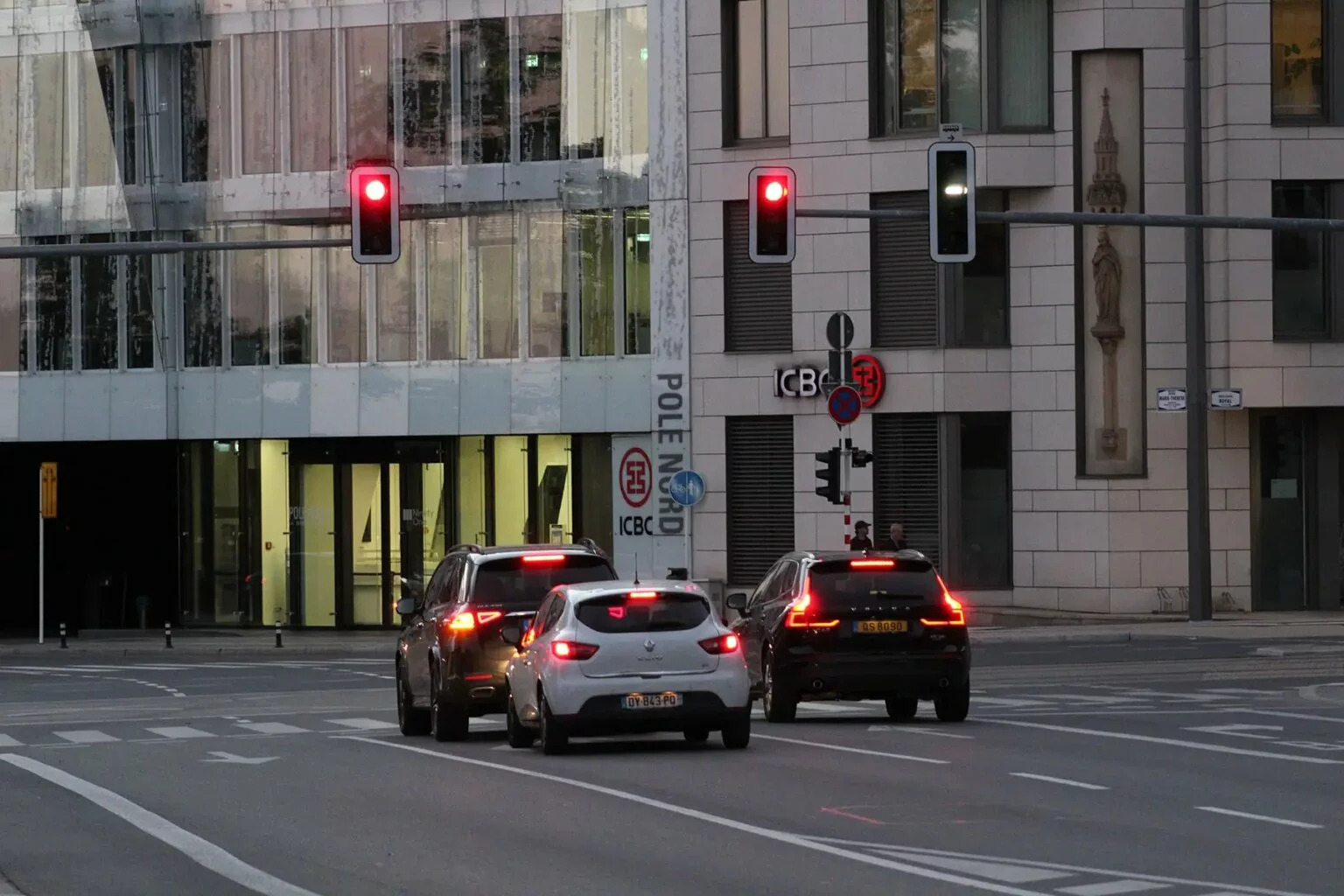Luxembourg has one of the most comprehensive tax systems in the world. This means you can expect to pay many different types of taxes while living there, whether you’re a resident or a citizen. Internationals will be happy to hear that Luxembourg offers special income tax benefits to workers recruited from abroad.
Keep reading for more, including:
taxx.lu
Need to file your income taxes as an expat or cross-border commuter working in Luxembourg? Get it done quickly and easily with taxx.lu. Their app guides you through the entire process, complete with customer service assistance, for only €59. Save yourself time, money, and stress with taxx.lu.
The tax system in Luxembourg
The Luxembourg Inland Revenue (Administration des contributions directes – ACD) oversees the country’s tax system. Luxembourg’s tax year runs alongside the calendar year, from 1 January to 31 December.

As a foreigner working in Luxembourg, you’ll need to pay tax on income from employment and any businesses you own. Taxes levied at the federal level include personal income tax, corporate tax, value-added tax (VAT), and inheritance tax. Property and municipal business taxes are levied at a local level.
Luxembourg’s tax system is generally quite complicated, with employment income taxed across 23 progressive brackets. However, the top tax rate is only 42% – lower than in many neighboring European countries.
What is new about Luxembourg taxes in 2025?
For 2025, Luxembourg’s government has made changes to income tax and corporate tax.
Income tax bands have risen with inflation, meaning workers now need to pay tax on earnings over €13,320, up from €12,438 in 2024. Changes have also been made to simplify Luxembourg’s impatriate tax regime, which offers tax exemptions for highly-skilled foreign workers. We’ll explain the changes in more detail below.
For companies, headline corporate tax rates have been reduced. Companies with taxable income above €200,000 pay corporate tax at a rate of 16% (down from 17% in 2024), while those with profits below €150,000 pay 14% (down from 15% in 2024).
Additionally, the VAT registration threshold for companies has risen to €50,000 (from €35,000 in 2024).
Who pays tax in Luxembourg?
If you’re a foreigner living in Luxembourg, you’re generally liable to pay income tax and file a tax return. Meanwhile, Business owners in Luxembourg may be subject to corporate tax and VAT.
Your tax liability in Luxembourg varies depending on your residency status. Residents must declare their worldwide income, but non-residents are only taxable on their income from within Luxembourg.
To be classified as a resident taxpayer, you must have lived in Luxembourg for more than six consecutive months. If you lived in Luxembourg for less than six months, you’ll be considered a non-resident taxpayer.
Luxembourg has a large non-resident base, primarily due to people commuting into the country from bordering countries such as France, Germany, and Belgium.
How do Luxembourg taxes work for expats?
If you move to Luxembourg with your spouse, your income will likely be taxed jointly. This can be preferable as married couples’ income tax rates are generally lower.
If one spouse is considered a resident and the other is not, they are taxed separately. If you are in a partnership but not married, your income can be covered as a joint income if one of the partners (or the non-resident partner) generates 90% or more of its total income in Luxembourg.
Couples must share the same address in Luxembourg for at least one year before applying for joint taxation.
Impatriate tax regime
Highly skilled workers recruited from abroad may qualify for Luxembourg’s impatriate scheme.

Up to the end of 2024, the scheme enabled foreign employees to benefit from a 50% tax exemption on 30% of their salary.
As of 1 January 2025, the rules have been simplified to offer a 50% tax exemption on the worker’s salary, capped at €400,000.
To qualify, expats must be tax residents and conduct work that isn’t replacing that of a local employee. They must also have a basic annual salary of at least €75,000.
Luxembourg’s double taxation treaties
Luxembourg has tax treaties with all EU countries and many non-EU states to prevent double taxation.
Types of tax in Luxembourg
Income tax
Luxembourg levies income tax on earnings from employment, self-employment, pensions, investments, rented property, and other miscellaneous items like private assets and capital gains.
Regular taxpayers usually have their contributions deducted automatically from their salaries under the country’s pay-as-you-earn (PAYE) system. However, they must still file an income tax return to ensure they are paying the correct amount.
Workers in Luxembourg belong to one of the three tax classes, which determines their tax-free allowance. Some additional deductions are also available to reduce the tax burden. Once your taxable income has been determined, it will be set against Luxembourg’s 23 income tax bands to calculate your tax bill.
In 2025, the first €13,230 you earn is exempt from income tax. The highest rate of 42% is only levied on earnings over €234,871. You must file a tax return on your earnings for 2024 by 31 December 2025.
Income tax for self-employed workers
Self-employed workers, including freelancers and sole traders, pay income tax at the same rates as employed people. Like in many countries, self-employed workers can deduct costs incurred for running their business before calculating their taxable income.
Municipal tax
Communes in Luxembourg can set their own municipal tax for companies (more on this in the next section) and property tax for companies and individuals. These communal taxes cover local services such as waste management and water supply.
Luxembourg levies property taxes annually on residential, commercial, or mixed-use property ownership. Rates vary from 0.7% to 1% of the property’s’ tax base’ which depends on its nature and location. The calculations can be complicated so it’s good to contact your local municipal office to find out about the rules in your area.
Corporate tax
Businesses that make more than €200,000 a year in Luxembourg must pay corporate tax at a rate of 16% in 2025 (down from 17% in 2024).
Companies must also pay an additional solidarity tax (7%) and a municipal business tax (6.75% in Luxembourg City). This means that the effective corporate tax rate for businesses is 23.87% in 2025, compared to 24.94% in 2024.

Lower rates are available for companies with lower profits, as follows:
- Annual profit of less than €175,000: 14% corporate tax rate, down from 15% in 2024.
- Annual profit of €175,001–200,000: flat charge of €24,500(previously €26,250) plus 30% (previously 31%) of profits above €175,000.
Companies usually pay corporate tax bills in advance every quarter. Payments are due in March, June, September, and December.
VAT in Luxembourg
Value-added tax (VAT – Taxe sur la Valeur Ajoutée, TVA) is an EU tax payable on business transactions. While it’s theoretically paid by companies, the cost is actually passed on to customers in the form of a price increase.
VAT rates are as follows:
- Super-reduced rate: 3% (e.g., foodstuffs, pharmaceuticals, restaurants)
- Reduced rate: 8% (e.g., cleaning, repairs, heating)
- Intermediate rate: 14% (e.g., clothing, wine)
- Standard rate: 17% (e.g., alcohol, beer, shoes)
VAT for businesses
Businesses and self-employed traders with an annual turnover of more than €50,000 (up from €35,000 in 2024) must register for VAT by law. Once registered, businesses receive a VAT number.
VAT bills are payable either monthly, quarterly, or annually, depending on the company’s turnover. Companies with a turnover of less than €112,000 must file VAT returns annually by 1 March.
Capital gains tax
Whether you’re subject to capital gains tax when you sell a property in Luxembourg depends on a few different factors. For example, you don’t have to pay capital gains tax when selling your main house or primary place of residence.
If you’re selling your home within five years of buying it, the profit will be taxed as part of your income, taxable at the relevant income tax bracket. If the sale takes place more than two years after the purchase, you may be able to pay a reduced rate.
You can claim tax reductions of up to €50,000 every 10 years on a capital gain. For inherited properties, you may benefit from a tax reduction of €75,000.
Real estate income
Any income from leasing a residential property to tenants in Luxembourg is subject to standard income tax rates. The maximum marginal tax rate on rental property owned by resident taxpayers is 42.8% or 43.6%, depending on the owner’s annual taxable income.
Resident taxpayers who own rental properties in Luxembourg or abroad must report rental income on their tax returns.
Inheritance tax
Inheritance tax in Luxembourg is payable on the estates of all residents. How much you pay depends on the estate’s value and your relationship with the deceased.
Tax brackets ranging from 0% to 15% apply to inheritances worth less than €10,000, although there is a tax-free allowance on small inheritances worth up to €1,250.
For estates valued at over €10,000, tax surcharges start at 10% and go up to 220% for properties over €1,750,000. Deductions apply depending on your relationship with the deceased. For example, spouses with no children have an allowance of €38,000.
EU expats can express their wishes in a will to follow the inheritance laws of their home country. Luxembourg’s government provides a guide to calculating taxes on inherited estates.
Gift tax
Gift tax liability depends on the relationship between the donor and donee, and rates vary between 1.8% and 14.4%. The government’s guide to gifts and donations provides more information.
Road tax
People who drive a car in Luxembourg must pay an annual road tax. Luxembourg’s Customs and Excise Agency collects road tax in the country. The agency offers an online road tax calculator to work out how much you’ll need to pay.

Tax avoidance and evasion in Luxembourg
Luxembourg’s government aims to crack down on tax avoidance, with fines in force for both accidental and deliberate offenses. Here’s what you can expect depending on the tax offense committed:
- Incomplete or inaccurate returns: between 5% and 25% of the tax due.
- Involuntary tax fraud: between 5% and 25% of the avoided tax.
- ‘Simple’ tax fraud: between 10% and 50% of the avoided tax.
- ‘Aggravated’ tax fraud: between €25,000 and six times the amount due, plus imprisonment of between one month and three years.
- Tax evasion: between €25,000 and 10 times the taxes evaded, plus prison time of one month to five years.
Luxembourg’s tax fines and penalties
Individual income tax fines for late payment are set at 0.6% of the outstanding payment (in French) per month, starting in the month following the payment’s due date.
If you successfully request an extension to the deadline, this fee will be waived for the next four months and a payment schedule will be agreed upon. After that, you’ll be charged interest at the following rates:
- 0.1% per month between 5 and 12 months
- 0.2% per month for payments between one and three years overdue
- 0.6% per month for payments more than three years overdue
Companies that file late or fail to pay face penalties of 10% of the tax due, and a fine of up to €25,000.
Filing an incorrect or incomplete tax return incurs a charge of 5–25% of the incorrect tax.
Tax advice in Luxembourg
Taxes in Luxembourg can be a complex matter. The information above provides a general overview, but you should always get professional advice from a financial expert regarding your individual tax situation.
There are also online services that can guide you through income tax filing, such as taxx.lu.
Luxembourg’s government offers guides on how tax matters work in French, English, and German. There are also several accountancy trade associations through which you might be able to find a regulated English-speaking accountant. These include the Association of British and Irish Accountants in Luxembourg and the Order of Chartered Accountants.
Useful resources
- Luxembourg Inland Revenue – government agency that manages taxation
- Luxembourg tax offices – find your local representative of the Luxembourg tax agency
- Individual tax return form – file your income taxes online







